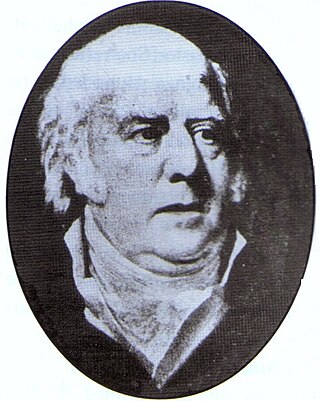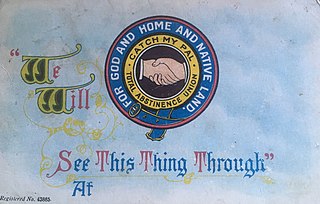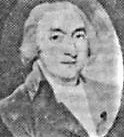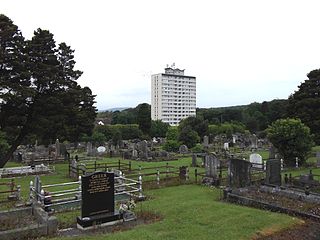The United Free Church of Scotland is a Scottish Presbyterian denomination formed in 1900 by the union of the United Presbyterian Church of Scotland and the majority of the 19th-century Free Church of Scotland. The majority of the United Free Church of Scotland united with the Church of Scotland in 1929.

The Non-subscribing Presbyterian Church of Ireland is a non-creedal Christian denomination, which maintains a great emphasis on individual conscience in matters of Christian faith. Today, the denomination has thirty-four congregations on the island of Ireland, divided into two Presbyteries and one synod, with a total of about four thousand members. The denomination currently has twenty-five ministers on its roll with both women and men serving as ministers. The NSCPI is also a member of the International Association for Religious Freedom. It has also recorded year-on-year growth in recent years.

The Belfast Royal Academy is the oldest school in the city of Belfast, Northern Ireland. It is a co-educational, non-denominational voluntary grammar school in north Belfast. The Academy is one of 8 schools in Northern Ireland whose Head is a member of the Headmasters' and Headmistresses' Conference.

Tandragee is a town in County Armagh, Northern Ireland. It is on a hillside above the Cusher River, and is overlooked by Tandragee Castle. The town is in the civil parish of Ballymore and the historic barony of Orior Lower. Earlier spellings of the name include 'Tanderagee' and 'Tonregee'. It had a population of 3,545 people in the 2021 census.

John Abernethy was an Irish Presbyterian minister and church leader.

Henry Joy McCracken was an Irish republican executed in Belfast for his part in leading United Irishmen in the Rebellion of 1798. Convinced that the cause of representative government in Ireland could not be advanced under the British Crown, McCracken had sought to forge a revolutionary union between his fellow Presbyterians in Ulster and the country's largely dispossessed Catholic majority. In June 1798, following reports of risings in Leinster, he seized the initiative from a leadership that hesitated to act without French assistance and led a rebel force against a British garrison in Antrim Town. Defeated, he was returned to Belfast where he was court-martialled and hanged.

The Royal Belfast Academical Institution is an independent grammar school in Belfast, Northern Ireland. With the support of Belfast's leading reformers and democrats, it opened its doors in 1814. Until 1849, when it was superseded by what today is Queen's University, the institution pioneered Belfast's first programme of collegiate education. Locally referred to as Inst, the modern school educates boys from ages 11 to 18. It is one of the eight Northern Irish schools represented on the Headmasters' and Headmistresses' Conference. The school occupies an 18-acre site in the centre of the city on which its first buildings were erected.

This is a list of events that happened in Northern Ireland in 1944.
James Seaton Reid MA DD (1798–1851) was an Irish presbyterian minister and church historian.

The Presbyterian Church in Ireland is the largest Presbyterian denomination in the Republic of Ireland, and the largest Protestant denomination in Northern Ireland. Like most Christian churches in Ireland, it is organised on an all-island basis, in both Northern Ireland and the Republic of Ireland. The church has approximately 210,000 members.

Rutherford Waddell (1850–1932) was a notable New Zealand Presbyterian minister, social reformer and writer. He was born in Ireland and after failing to finding a position as a missionary or a minister Waddell and his wife migrated to New Zealand in 1877. Settling in Dunedin he led St Andrew's Presbyterian Church for forty years from 1879 to 1919. An important liberalizing influence in the Presbyterian church in New Zealand he was an active believer in the value of the ministry to promote social justice. This led him to oversee the setting up a mission hall, savings bank, free library and free kindergarten within his parish, as well as promoting the founding of a variety of cultural and sporting groups.

William Steel Dickson (1744–1824) was an Irish Presbyterian minister and member of the Society of the United Irishmen, committed to the cause of Catholic Emancipation, democratic reform, and national independence. He was arrested on the eve of the United Irish rising in his native County Down in June 1798, and not released until January 1802.
Samuel Hanna (1772?–1852), Irish presbyterian divine, was born at Kellswater, near Ballymena, Co. Antrim.
James Downham, D.D. was Dean of Armagh from 1667 until his death in 1681.

Catch-my-Pal, alternatively known as the 'Protestant Total-Abstinence Union', was an anti-alcohol organisation founded on 13 July 1909 in Armagh, Ireland. The organisation closed down in January 1970, when its last club stopped operations.

Thomas Ledlie Birch (1754–1828) was a Presbyterian minister and radical democrat in the Kingdom of Ireland. Forced into American exile following the suppression of the 1798 rebellion, he wrote A Letter from An Irish Emigrant (1799).

James Kirkpatrick was an Irish Presbyterian minister.

Dundonald Cemetery is a large cemetery in Dundonald, Northern Ireland. It opened in 1905 as a municipal burial ground. It is a closed cemetery, except for spaces in existing plots. It is located beside Ardcarn, on the Upper Newtownards Road, East Belfast. The site was originally known as Donall’s Fortress, named after a nearby fort.














